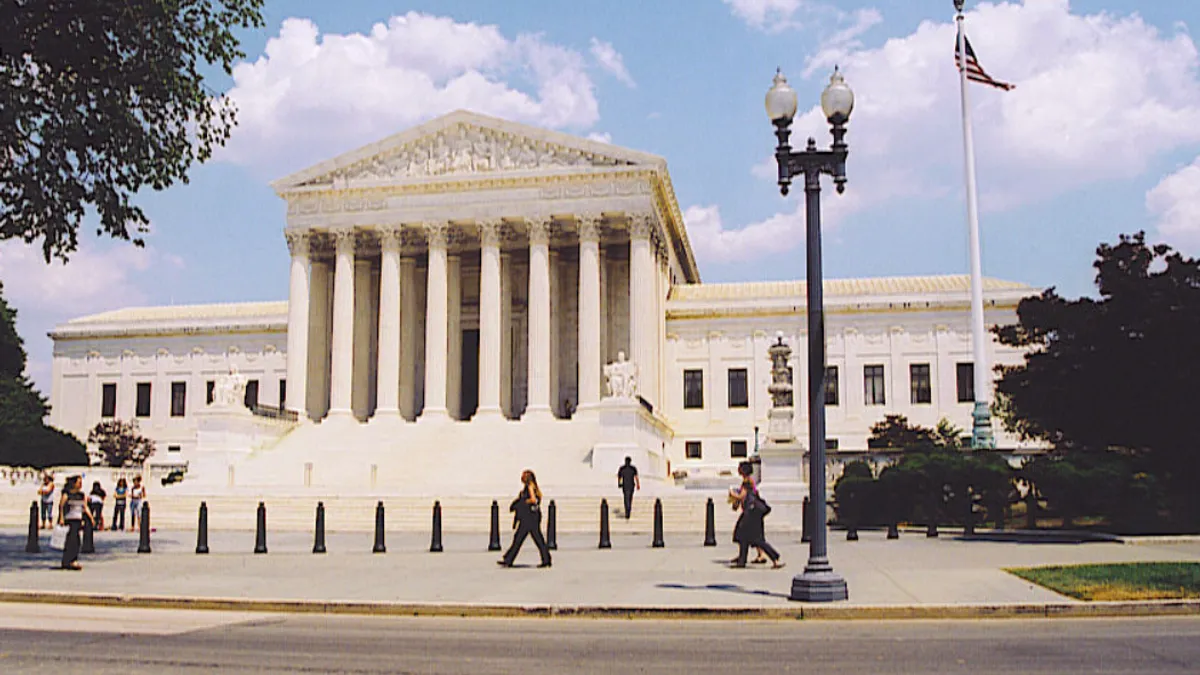Parties won’t be able to reopen a case on the basis a ‘legal’ mistake was made under federal civil procedure rule 60(b), the U.S. Supreme Court says in an 8-1 decision.
Petitioner Dexter Kemp argued in Kemp v. United States that rule 60(b)(1) applies to factual mistakes, not legal errors made by judges, but the court rejected that.
“The ordinary meaning of the term ‘mistake’ … includes a judge’s legal errors,” Justice Clarence Thomas said in writing the majority opinion.
Non-legal errors
Kemp argued rule 60(b)(1) applies only to factual mistakes because other grounds for reopening a case in the rule appear to relate to non-legal errors like “inadvertence, surprise, or excusable neglect,” and for that reason a judge’s legal error should fall under rule 60(b)(6), which offer grounds for reopening a case for other reasons.
The distinction is important to Kemp because the judge, who sentenced him and codefendants in 2013 for drug and gun crimes, made an error in applying the law by saying he missed a one-year deadline for filing a motion to overturn his conviction. The judge was supposed to start the clock once the codefendants’ rehearing petitions were denied, but he started the clock earlier.
If the judge’s legal mistake were to be disallowed under 60(b)(1), Kemp could seek to reopen the case under 60(b)(6), which doesn’t have the one-year deadline.
Kemp, represented by Andrew Adler, a federal public defender in the Southern District of Florida, argued that several states interpret “mistake” under procedural rules as a term of art that excludes legal errors, but Thomas said not all states interpret it that way and in any case the definition wasn’t settled in 1938, when rule 60 was written.
Kemp also argued a broad interpretation of mistakes to include legal errors would cause an overlap with other provisions in rule 60 and other federal rules, but Thomas said courts have not found that to be a problem.
“Courts of Appeals have well-established tests for distinguishing between these Rules,” Thomas said.
Benjamin Snyder, an assistant to the solicitor general who argued the case for the federal government, called it obvious that “mistakes” includes legal mistakes, but Thomas dismissed this view, saying it would open up conflict going forward over the meaning of “obvious” if such a gloss were to be applied.
Circuit conflict
Justice Neil Gorsuch was the lone dissenter, saying the matter would have been more appropriately handled by a rules committee.
Columbia Law School Professor Ronald Mann says it appears the court wanted to take up the case as a way to resolve differences among circuit courts in handling the matter of rule 60(b)(1) overlapping with 60(b)(6) and other provisions in the rule as well as other federal rules.
“This plainly seems to be a case taken to resolve a circuit conflict,” he says.











